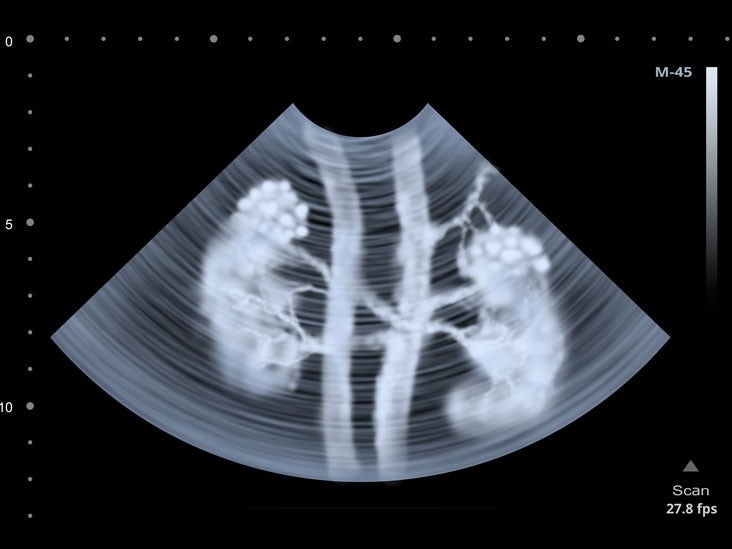The kidneys are remarkable organs that play a crucial role in maintaining our overall health and well-being. Responsible for filtering waste products and excess fluids from the blood, the kidneys help regulate blood pressure, balance electrolytes, and support red blood cell production. To ensure the optimal functioning of these vital organs, regular monitoring and early detection of potential issues are essential. The doctor recommended a kidney ultrasound scan to assess and diagnose the cause of the persistent discomfort in the patient’s lower back and abdomen. Liverpool ultrasound, also known as sonography, is a non-invasive and effective way to look at organs and soft tissues inside the body. One valuable tool in this regard is the ultrasound scan, which provides clear insights into kidney health and aids in the timely diagnosis of kidney-related conditions.
Understanding Kidney Ultrasound Scans
A kidney ultrasound, also known as a renal ultrasound, is a non-invasive imaging procedure that uses high-frequency sound waves to produce real-time images of the kidneys. This painless and safe technique allows healthcare providers to assess the size, shape, and condition of the kidneys, as well as identify any abnormalities or potential problems.

The Purpose of Kidney Ultrasound Scans
The primary purpose of kidney ultrasound scans is to:
1. Assess Kidney Structure
Ultrasound scans provide detailed images of the kidneys, enabling healthcare professionals to evaluate their size, shape, and overall structure.
2. Detect Kidney Abnormalities
Ultrasound scans can detect various kidney abnormalities, including kidney stones, cysts, tumors, and congenital anomalies.
3. Evaluate Kidney Blood Flow
In some cases, kidney ultrasound scans are used to assess blood flow to and from the kidneys, aiding in the diagnosis of vascular conditions.
4. Monitor Kidney Health
For individuals with known kidney conditions or those at risk of developing kidney problems, regular ultrasound scans are valuable for monitoring kidney health and detecting changes over time.
Common Indications for Kidney Ultrasound Scans
Kidney ultrasound scans are performed for various medical indications, including:
1. Kidney Stones
Ultrasound is often used to detect and assess the size and location of kidney stones, which are mineral and salt deposits that can cause severe pain and discomfort.
2. Urinary Tract Infections (UTIs)
Kidney ultrasound scans can help identify signs of urinary tract infections that may have spread to the kidneys.
3. Cysts and Tumors
Ultrasound is effective in distinguishing between simple kidney cysts, which are usually harmless, and tumors that require further evaluation.
4. Kidney Enlargement
Enlargement of the kidneys can be an indication of various underlying conditions, and ultrasound scans can provide valuable insights.
5. Chronic Kidney Disease (CKD)
For individuals with CKD, kidney ultrasound scans are used to monitor the progression of the disease and assess kidney function.
The Kidney Ultrasound Procedure
Preparing for the Scan
In most cases, no specific preparation is required for a kidney ultrasound scan. Patients may be asked to drink water and refrain from urinating before the scan to obtain clearer images.
During the Scan
During the procedure, the patient lies on an examination table, and a water-based gel is applied to the skin overlying the kidneys. The ultrasound transducer is then moved gently over the area to capture images of the kidneys.
After the Scan
Once the scan is complete, the gel is wiped off, and the patient can resume normal activities immediately.
The Benefits of Kidney Ultrasound Scans
1. Non-Invasive and Painless
Kidney ultrasound scans are non-invasive and painless, making them well-tolerated by patients of all ages.
2. Radiation-Free
Unlike other imaging techniques, such as CT scans, kidney ultrasounds do not involve exposure to ionizing radiation, making them safe for repeated use.
3. Real-Time Imaging
Ultrasound provides real-time images, allowing healthcare providers to observe kidney function and blood flow dynamically.
4. Early Detection of Issues
Early detection of kidney problems through ultrasound scans enables timely intervention and treatment, potentially preventing further complications.
5. Cost-Effective
Compared to other imaging modalities, kidney ultrasounds are relatively cost-effective, making them accessible to a broader population.
Conclusion: Empowering Kidney Health through Knowledge
The kidneys are unsung heroes, silently performing vital functions that keep our bodies in balance. To ensure their optimal functioning, regular monitoring and proactive care are crucial. Kidney ultrasound scans offer clear insights into kidney health, allowing healthcare providers to detect potential issues early and intervene before they progress.
As we embrace the journey of health and well-being, let us empower ourselves with knowledge and take proactive steps to protect the health of our kidneys. By valuing regular kidney ultrasound scans as an essential part of preventive care, we can pave the way for a healthier and more vibrant life, cherishing the invaluable gift of kidney health.





Leave a Reply